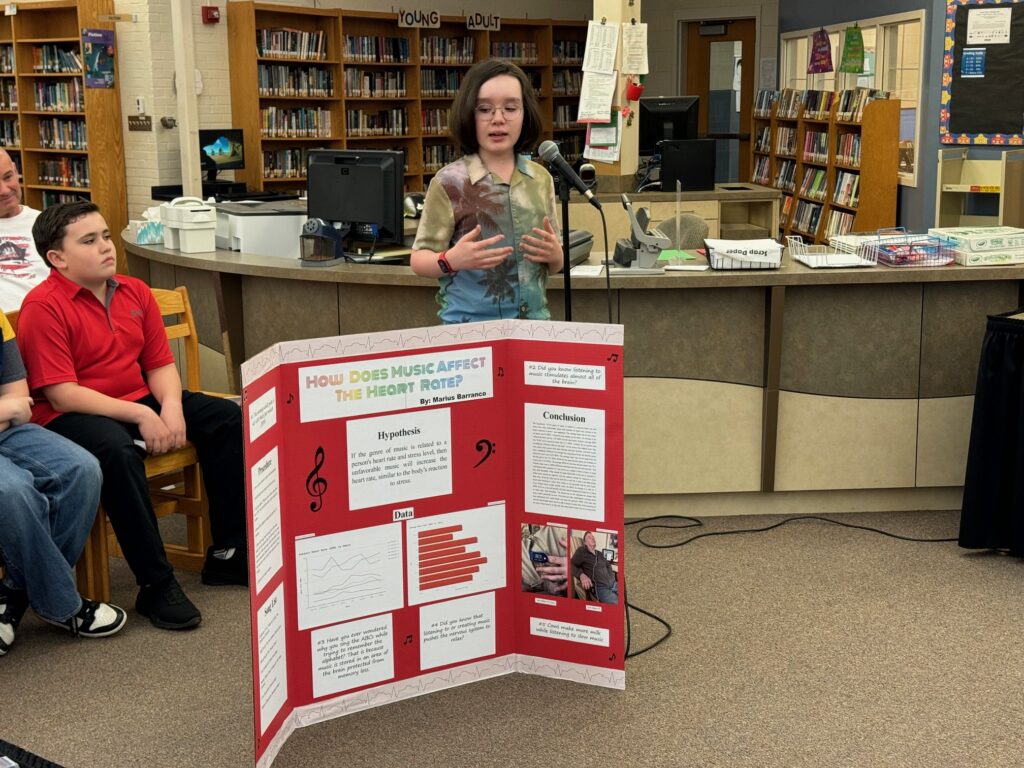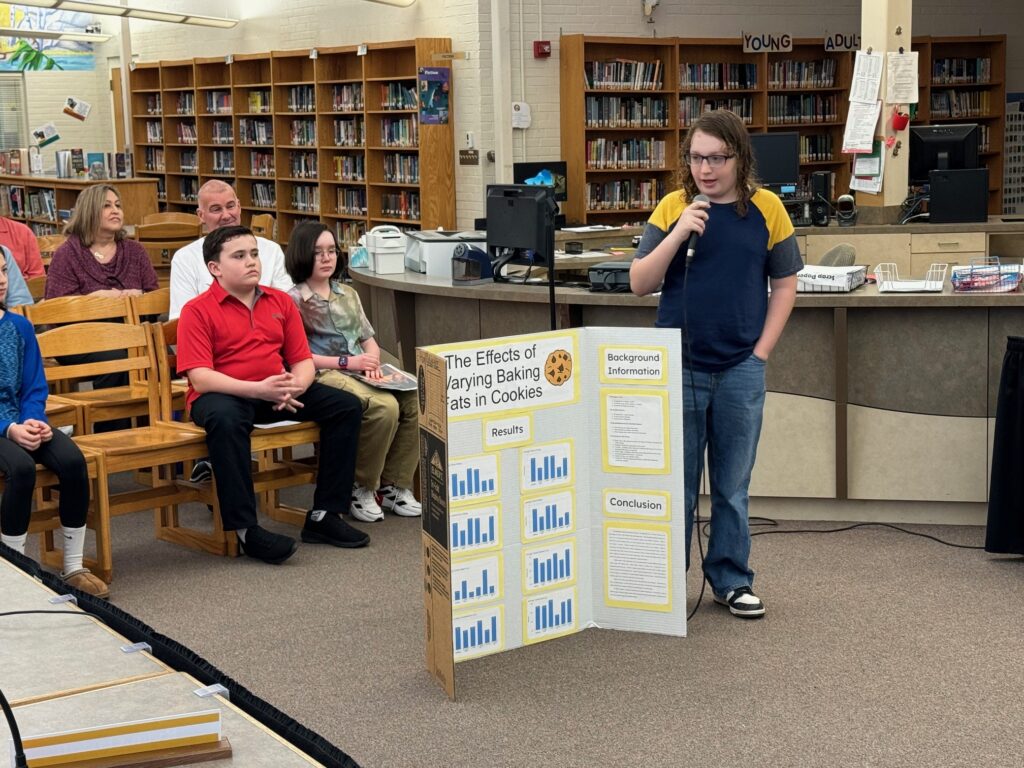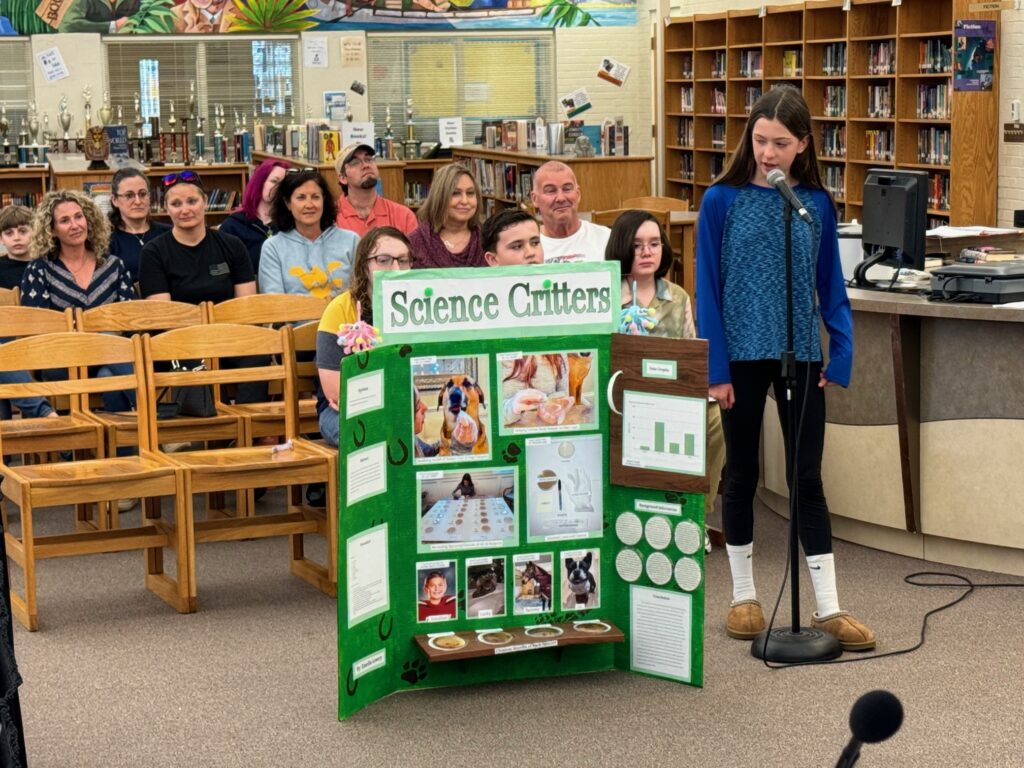Chase Benckert presents his award-winning science fair project to the Margate Board of Education, April 11.
By NANETTE LoBIONDO GALLOWAY
MARGATE The Board of Education Wednesday, April 10 recognized four sixth grade students who excelled in the school's annual Science Fair organized by teacher Chelsi Crompton, went on to compete at the regional Jersey Shore Science Fair held at Stockton University, and qualified to compete in the Delaware Valley Science Fair in Oaks, Pennsylvania.
While their counterparts were on spring break, four Tighe students competed along with 854 other students in grades 6-12 April 3 at the Greater Philadelphia Expo Center, and two of them brought home ribbons and prizes. Qualifying competitors from the Tighe School included Marius Barranco, Ethan Rabinowitz, Emelia Lawry and Chase Benckert.
Emilia won honorable mention in the Microbiology category. Chase took third place in Consumer Science category and also won two special awards the Mixit-Kohlhaas Award that included a $100 prize, and the Stain-Gobain Foundation award that recognizes students whose research has a positive impact on society and the planet. That award provided a $400 prize.
Chase is now eligible to compete in the Thermo Fisher Junior Innovators Challenge national competition. Entries will be judged during the summer and winners will be announced in September. The top 300 projects will win an all-expense-paid trip to finals in Washington, D.C.
The students brought their presentation boards to the meeting and briefly explained their projects.
 Marius Barranco presents 'How Does Music Affect the Heart Rate.'
Marius Barranco presents 'How Does Music Affect the Heart Rate.'
Marius was first up with his project, How Does Music Affect the Heart Rate? After playing music for a subject, the student scientist tracked his subjects' heart rates using a special meter to determine heart rates in relation to the type of music they heard. Marius found that classical music slowed heart rate to 1 bpm while faster paced music resulted in up to 3 bpm.
 Ethan Rabinowitz and his cooking fat cookies presentation.
Ethan Rabinowitz and his cooking fat cookies presentation.
Ethan studied The Effect of Varying Baking Fats in Cookies. After making six batches of cookies using different cooking fats margarine, Greek yogurt, butter, canola oil, avocado oil and chicken fat, he conducted a blind taste test. Overall, the testers liked butter the best, he said, and avocado oil the least.
 Science Critters presented by Emelia Lawry.
Science Critters presented by Emelia Lawry.
Emelia's project was Science Critters, to determine which mammals' mouths are the cleanest. Emelia swabbed the mouths of cats, dogs, horses and humans and placed the contents on a petri dish for 10 days. After analyzing results, she discovered that humans have the cleanest mouths, cats came in second, horses third and dogs last.
Chase's award-winning project was Energy Vampires. He tested appliances in his home to determine the wattage they drew over a three-day period. Using some mathematics, he determined daily and yearly averages and applied the cost of electricity to each to determine which products were the most expensive to operate. The biggest consumers of electricity were the TV, microwave and computer printer, he said.
Board and audience members gave the students a hearty round of applause and Principal Ryan Gaskill congratulated them for doing excellent work.
Copyright Mediawize, LLC 2024